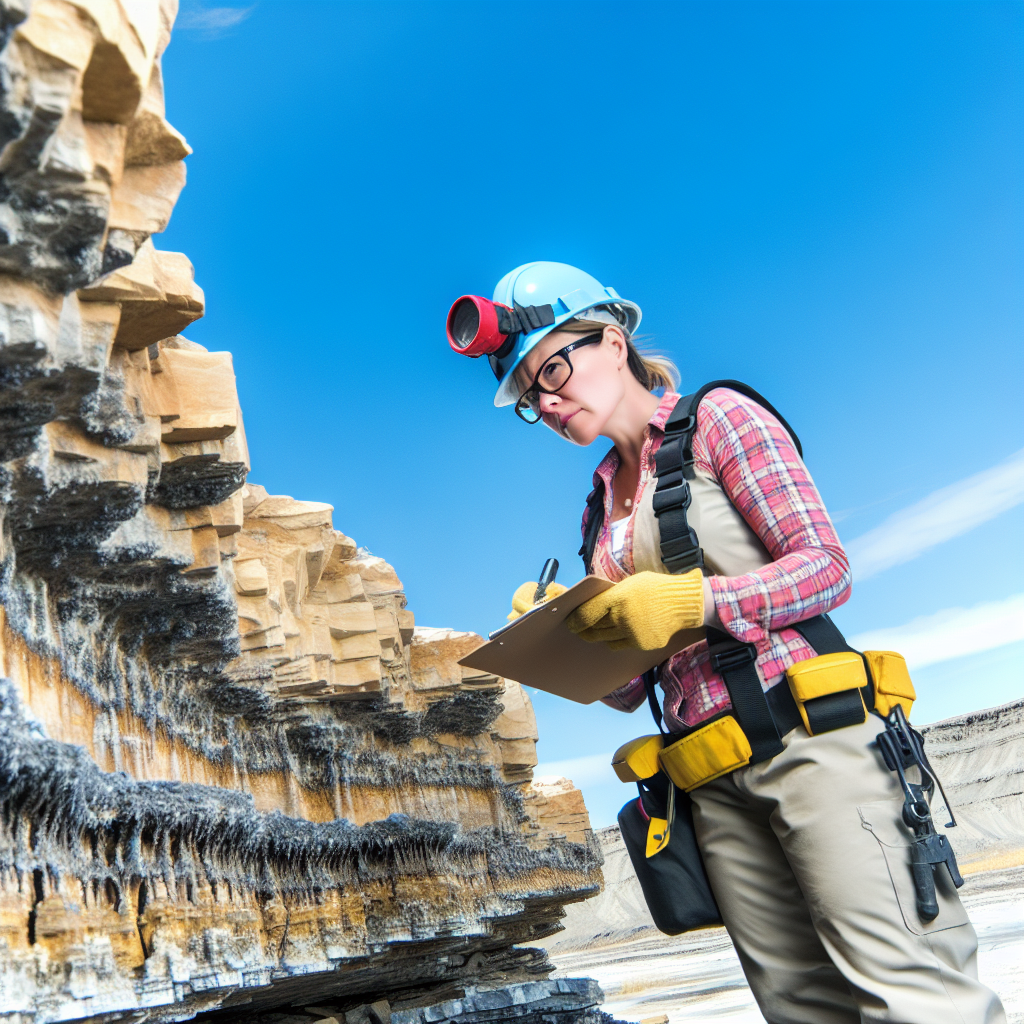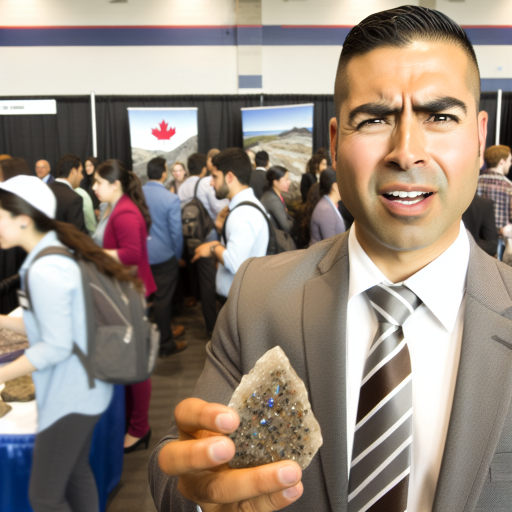Overview of Geology Programs in Canada
The study of geology is crucial for understanding Earth’s processes.
Canadian universities offer a range of geology programs to meet diverse interests.
Students can explore themes such as mineralogy, paleontology, and geophysics.
These programs often combine theoretical knowledge with practical skills.
Types of Geology Degrees
Geology programs in Canada provide various degree options.
Undergraduate programs typically lead to a Bachelor of Science in Geology.
Graduate programs, including Master’s and Ph.D. degrees, offer advanced study opportunities.
Many universities also offer dual degrees combining geology with environmental studies.
Fieldwork and Research Opportunities
Hands-on fieldwork is a critical component of geology education.
Students often participate in field trips to collect data and samples.
Research opportunities abound, allowing students to work alongside faculty.
Many universities provide access to state-of-the-art laboratories and equipment.
Career Prospects for Geology Graduates
Graduates of geology programs find diverse career paths available.
Common careers include roles in mining, environmental consultancy, and education.
Some graduates pursue careers in oil and gas exploration as well.
Government agencies also employ geology graduates for policy and research positions.
Top Canadian Universities Offering Geology Programs
Several prestigious universities in Canada offer robust geology programs.
The University of British Columbia is known for its comprehensive curriculum.
McGill University provides research opportunities in various geological fields.
The University of Alberta specializes in petroleum geology and environmental geology.
Additionally, the University of Toronto offers interdisciplinary programs related to geology.
Top Canadian Universities Offering Geology Degrees
University of Alberta
The University of Alberta offers a comprehensive geology program.
Students can explore various aspects of earth sciences.
Research opportunities enhance practical learning experiences.
Graduates find careers in mining, environmental consulting, and education.
Unlock Your Career Potential
Visualize a clear path to success with our tailored Career Consulting service. Personalized insights in just 1-3 days.
Get StartedUniversity of British Columbia
At UBC, students engage in innovative geology studies.
The program emphasizes fieldwork and laboratory research.
Students enjoy access to state-of-the-art facilities.
The location in British Columbia offers diverse geological features.
McGill University
McGill University provides a strong curriculum in geology.
Students benefit from interdisciplinary studies with other science fields.
Field trips are an integral part of the learning process.
Graduates often work in resource management and research.
Dalhousie University
Dalhousie University focuses on coastal geology and marine sciences.
The program covers a range of geological topics, including geophysics.
Students conduct hands-on research in local ecosystems.
This university prepares students for impactful careers.
University of Toronto
The University of Toronto offers a vibrant geology program.
Students have opportunities for fieldwork and international study.
The curriculum includes advanced geological mapping techniques.
Graduates often pursue PhDs or enter the workforce in various sectors.
Admission Requirements for Geology Programs in Canada
General Admission Criteria
Most Canadian universities require a high school diploma for entry into geology programs.
Applicants must complete specific science and math courses.
Particularly, courses in physics, chemistry, and biology are essential.
Additionally, universities often require strong performance in mathematics.
Some institutions may also expect students to take standardized exams.
Undergraduate Program Requirements
Undergraduate programs typically demand higher secondary school grades.
Most universities look for a minimum average in core subjects.
A well-rounded application may include letters of recommendation.
Moreover, personal statements can strengthen your application.
Extracurricular involvement, especially in science-related activities, can be beneficial.
Graduate Program Requirements
For graduate programs, candidates often need a relevant undergraduate degree.
Many graduate schools prefer degrees in geology or closely related fields.
High academic standing in previous studies is usually necessary.
Research experience can play a crucial role in acceptance decisions.
It is common to require GRE scores for some master’s programs.
International Student Considerations
International students face additional requirements for admission.
Proof of English language proficiency is typically required.
IELTS or TOEFL scores are commonly accepted by most universities.
Students should prepare their academic transcripts for evaluation.
Furthermore, securing a study permit is essential for international applicants.
Specific University Requirements
Each university may have unique admission criteria.
For example, the University of Alberta emphasizes fieldwork experience.
Meanwhile, McGill University requires a portfolio of relevant projects.
Applicants should review the specific requirements on university websites.
This ensures that you meet all necessary prerequisites for your chosen program.
See Related Content: Marine Biology Careers in Canada: Exploring Oceans and Aquatic Ecosystems
Comparison of Undergraduate vs. Graduate Geology Programs
Overview of Undergraduate Programs
Undergraduate geology programs typically last four years.
They introduce students to fundamental geological concepts.
Students engage in basic scientific training during this period.
Courses often include physical geology, mineralogy, and paleontology.
Additionally, students experience fieldwork and laboratory exercises.
These experiences enhance practical skills and real-world application.
Graduates usually obtain a Bachelor of Science degree.
Prerequisites for Graduate Programs
Graduate geology programs require a bachelor’s degree in geology or a related field.
Admission often includes strong academic performance in prior studies.
Students may need to submit standardized test scores, like the GRE.
Furthermore, some programs prefer candidates with relevant research experience.
Letters of recommendation can strengthen a candidate’s application.
Depth of Study in Graduate Programs
Graduate programs offer a deeper exploration of geological sciences.
They often focus on specialized areas such as geophysics, hydrogeology, or volcanology.
Research becomes a significant component of graduate education.
Students typically complete a thesis based on original research.
This experience prepares them for advanced roles in the field.
Career Opportunities after Graduation
Undergraduate graduates often start as field technicians or assistants.
They may work in environmental consulting, education, or mining.
On the other hand, graduates of master’s or doctoral programs pursue advanced positions.
These roles may include research scientists, educators, or industry leaders.
Graduate credentials often lead to higher salaries and job opportunities.
Differences in Program Focus
Undergraduate and graduate geology programs serve different purposes.
Undergraduate programs provide foundational knowledge and skills.
In contrast, graduate programs emphasize specialization and research.
The choice between them depends on individual career goals.
Gain More Insights: Day in the Life of a Canadian Geologist
Key Specializations within Geology Studies in Canada
Environmental Geology
Environmental geology focuses on the interactions between geological processes and human activities.
This specialization examines how geological factors impact environmental health.
Students learn about contamination and mitigation techniques for various pollutants.
Mineralogy
Mineralogy studies the composition, structure, and properties of minerals.
This branch plays a vital role in resource extraction industries.
Students analyze mineral samples and learn to identify them in the field.
Petrology
Petrology examines the origin and evolution of rocks.
This specialization is crucial for understanding Earth’s geologic history.
Students investigate igneous, metamorphic, and sedimentary rocks in detail.
Geophysics
Geophysics applies the principles of physics to study the Earth’s properties.
This field utilizes methods like seismic surveys and magnetic studies.
Students learn to interpret geophysical data to assess geological structures.
Geochemistry
Geochemistry involves the study of the chemical composition of Earth materials.
This specialization assesses processes such as mineral formation and weathering.
Students engage in lab work, analyzing samples for various chemical constituents.
Hydrogeology
Hydrogeology focuses on groundwater and its interactions with geological materials.
Students learn about aquifer properties and sustainable water management practices.
Additionally, this field addresses issues like groundwater contamination and recovery.
Paleontology
Paleontology studies fossils and ancient life forms to understand biological evolution.
This specialization overlaps with geology in reconstructing past environments.
Students develop skills in fieldwork and fossil identification through various techniques.
Geological Engineering
Geological engineering applies geological knowledge to design and evaluate engineering projects.
This field addresses challenges related to construction and natural hazards.
Students explore soil mechanics, slope stability, and site investigations in depth.
Gain More Insights: Canada’s Role in Space Exploration: New Opportunities in Research and Development

Career Opportunities for Graduates of Geology Programs
Exploring the Field
Graduates of geology programs can pursue diverse career paths.
Many find employment in environmental consulting firms.
Others work for government agencies focused on natural resources.
Additionally, some opt for careers in academia or research institutions.
Employment Sectors
The energy sector actively hires geology graduates.
These professionals contribute to oil and gas exploration.
Mining companies also seek geologists for resource extraction.
Furthermore, students may work in water resource management.
Job Roles and Responsibilities
Geologists often engage in field studies and data collection.
They analyze geological formations and assess resources.
Project management roles may also be available.
Moreover, some graduates focus on research and development.
Potential Employers
Top consulting firms, such as Golder Associates, hire geologists.
Government bodies, including Natural Resources Canada, offer positions.
Universities and colleges employ geology graduates as instructors.
Additionally, environmental organizations seek expertise in geology.
Advancement Opportunities
With experience, many geology graduates move into senior positions.
Some aspire to become project managers or lead consultants.
Others may choose to specialize in areas like geophysics.
Continuing education helps enhance skills and knowledge.
Discover More: Exploring the Impact of AI in Canadian Scientific Research Careers
Research Opportunities and Facilities in Canadian Universities
Leading Research Institutions
Canadian universities stand out for their innovative geology programs.
Institutions like the University of Alberta foster groundbreaking research.
Additionally, Simon Fraser University offers extensive studies in Earth sciences.
These institutions provide robust support for budding geologists.
State-of-the-Art Laboratories
Many universities feature advanced laboratories focusing on geological research.
McGill University, for example, offers cutting-edge geochemistry labs.
These facilities enable students to conduct hands-on experiments.
Moreover, they access sophisticated equipment for precise analysis.
Field Research Opportunities
Fieldwork is a crucial component of geology programs.
Universities organize regular field trips to diverse geological sites.
Students can explore regions from the Rockies to the Arctic.
These experiences enhance practical learning and research skills.
Collaborations with Industry
Many universities partner with industry leaders for research projects.
These collaborations provide real-world experience for students.
For instance, the University of Calgary works closely with oil and gas companies.
Such partnerships often lead to internship opportunities as well.
Funding for Research Projects
Canadian universities offer various funding options for research initiatives.
Graduate students can apply for grants through government and private organizations.
This financial support enables ambitious research outcomes.
Furthermore, successful projects can lead to published academic papers.
Access to Geological Collections
Universities maintain extensive geological specimen collections.
The Royal Ontario Museum is an excellent example of such resources.
These collections assist students in conducting comprehensive research.
Additionally, they provide materials for advanced study and experiments.
Student Support Services for Geology Students in Canada
Academic Advising
Academic advising plays a crucial role in student success.
Students can benefit from personalized guidance through their geology programs.
Advisors help in course selection and study plans based on career goals.
Additionally, they provide insights into internships and research opportunities.
Tutoring Services
Tutoring services offer additional academic support for challenging subjects.
Geology students can access tutoring in areas such as mineralogy and petrology.
Peer tutoring systems connect experienced students with those needing help.
Moreover, individual sessions can focus on specific course material.
Research Opportunities
Many universities provide research opportunities for undergraduate geology students.
These positions facilitate hands-on experience in real-world projects.
Students often engage in fieldwork, lab work, and data analysis.
Similarly, research can lead to co-authoring papers with faculty members.
Career Services
Career services enhance students’ employability after graduation.
Students benefit from workshops on resume writing and interview skills.
Additionally, career fairs often connect students with employers in geology.
They also provide assistance with job search strategies and networking.
Clubs and Organizations
Joining geology clubs and organizations fosters a sense of community.
These groups facilitate networking among peers and industry professionals.
Clubs often organize field trips, guest lectures, and workshops.
Moreover, students develop leadership skills through club participation.
Online Resources
Online resources provide valuable information for geology students.
Students can access databases, journals, and educational videos anytime.
Furthermore, online forums encourage interaction and discussion among peers.
This connectivity is essential for collaborative learning and inquiry.
Additional Resources
Graduate Schools for Planetary Science – AAS Division for Planetary …
USGS.gov | Science for a changing world
[E-Book for Sale]
500 Cutting-Edge Tech Startup Ideas for 2024 & 2025: Innovate, Create, Dominate
$19.99 • 500 Tech Startup Ideas • 62 pages
You will get inspired with 500 innovative tech startup ideas for 2024 and 2025, complete with concise descriptions to help you kickstart your entrepreneurial journey in AI, Blockchain, IoT, Fintech, and AR/VR.




